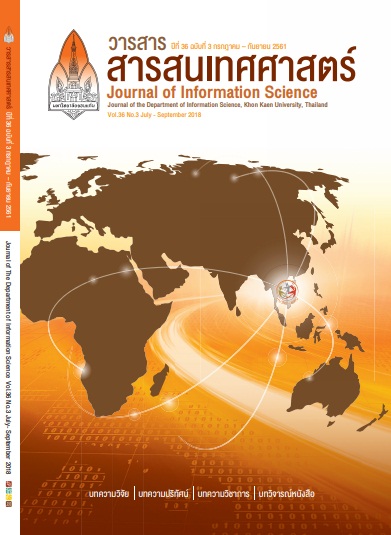The Study of Information Culture of Executives in Higher Education Institutions
Keywords:
Information culture, Executives, Norms, Information Practice, Strategy managementAbstract
This qualitative research explored the information culture of executives in the higher education institutions, concerning values, beliefs, information practical norms in information management and use, and information skills and abilities toward the organization management of the executives. The snowball sampling was used for selecting a total of 36 executives, including presidents or ex-presidents, vice presidents or ex-vice presidents, assistants to the presidents or ex-assistants to the presidents, deans or ex-deans, and associate deans or ex-associate deans. The data collection was conducted through the interviews and questionnaires, semi-structured interviews and the collected data from the interviews were analyzed using descriptive analysis method.
The data analysis concluded that the majority of the university executives placed importance on the information culture with regard to : 1) value - putting
high value on information, adhering information as the most important tool and key element for management decision-making, and acknowledging that every piece of information was the most important to the organizational resource and supported the university managements in many aspects, 2) belief - believing that value combined with attitude of organizations’ members could jointly create information culture, and that every member had to possess good information attitude, thinking system, effective communication, and information literacy skills, 3) information norms - placing importance on awareness on information norms in the organizations by the executives, which was the fundamental culture for the university management, such as establishing rules and regulations in management in writing for more systematic work performances; keeping reference credentials and information use
controlling through the information management which was supported by data, information, and every work unit; and using appropriate technology for connecting information systems for supporting management. The executives had to have awareness and access to the information use process in management, starting information need awareness, internal and external seeking information related to the management before its application. In addition, some executives encountered diffculties in accessing information and lacked basic skills in accessing management information.








